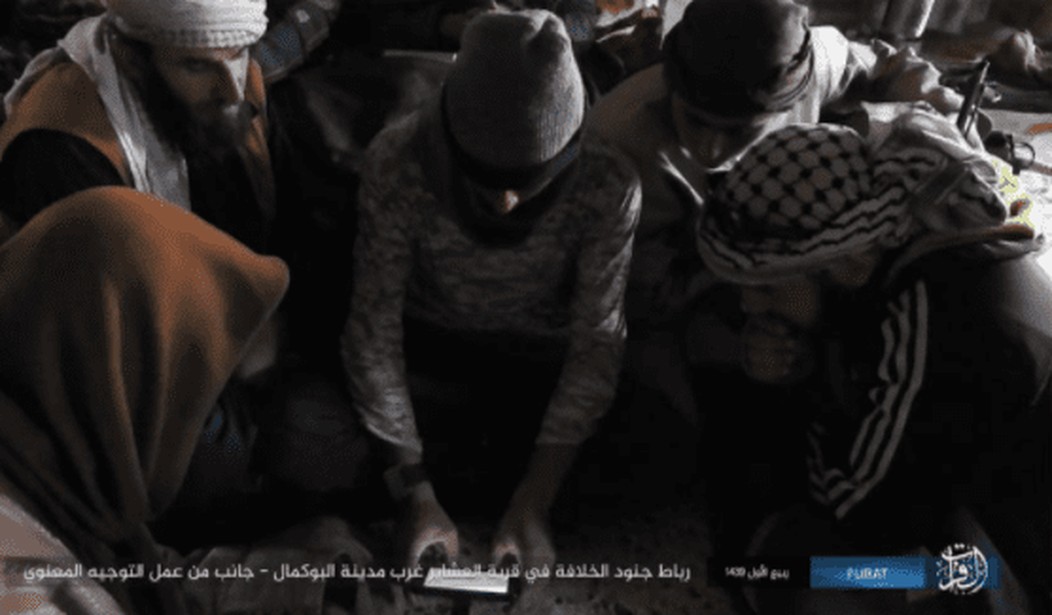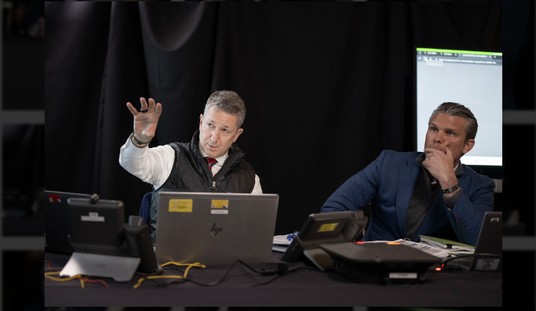WASHINGTON — A top official at the Office of the Director of National Intelligence told senators today that victories against the Islamic State in Syria and Iraq have not degraded the terror group’s ability to inspire worldwide attacks as guidance for homegrown terrorists on ops and methods is already well-entrenched in global jihadist circles.
Lora Shiao, acting director for intelligence at the National Counterterrorism Center, said before the Senate Homeland Security and Governmental Affairs Committee that “the terrorist landscape we face today involves more threats in more places from more terrorist actors than at any time in the past 16 years,” as “both ISIS and al-Qaeda have proven to be extremely resilient organizations.”
While losses of caliphate territory are “depriving the group of what was once a key part of its global narrative,” she said ISIS “takes a long view of the conflict” and has “already adapted its narrative to compensate by portraying the struggle as a long-term process that will test the fortitude of its followers.”
“Unfortunately, we don’t see ISIS’ loss of territory translating into a corresponding reduction in its ability to inspire attacks,” Shiao said. “…The number of arrests and disruptions we’ve seen worldwide tells us that ISIS’s global reach remains largely intact, even as the group is being defeated on the battlefield.”
Meanwhile, al-Qaeda “has never stopped being a top priority for the counterterrorism community,” and veteran pre-9/11 operatives are currently in Syria. “The various al-Qaeda affiliates have also managed to sustain recruitment, maintain local relationships and derive sufficient resources to enable their operations. So we see this continued evolution of al-Qaeda as evidence of its resiliency.”
The great concern in the U.S. is homegrown violent extremists, she emphasized, using simple tactics that don’t draw the attention of law enforcement in the planning stages.
FBI Deputy Assistant Director for Counterterrorism Nikki Floris called ISIS and homegrown violent extremists “the greatest threat to U.S. interests in the homeland and abroad.”
“No group has been as successful at drawing people into its perverse message as ISIS” in its online operations, she said, as the group “uses high-quality traditional media platforms, as well as widespread social media campaigns, to propagate its extremist ideology.”
“We have even seen ISIS and other terrorist organizations use social media to spot and assess potential recruits,” Floris added. “Through the internet, terrorists overseas now have direct access to our local communities to target and recruit our citizens and spread the message of radicalization, faster than we imagined just a few years ago.” Increasingly, these communications are encrypted, leaving the FBI in the dark.
Shiao said that as far as cyber warfare, though, “ISIS really has minimal hacking skills.”
“They are able to deface websites, they have put out hit lists of personally identifiable information on Westerners,” she said. “But this is primarily for intimidation. It’s not a key strength for them.”
Shiao said the cat is essentially out of the bag on homegrown online radicalization, with years of content easily accessible to would-be jihadists. “There is a lot of information out there. We can say it’s thick in the HVE bloodstream already, so to speak,” she said. “So even as we are able to degrade some capabilities to continue to put out and sustain the pace of media releases, we are aware that there is plenty of extremist content out there already in cyberspace.”
Social media companies “are very challenged” in trying to spot and remove extremist content “because ISIS is quickly able to reconstitute those accounts and to migrate to new platforms.” Companies often have “great intent to want to tackle this,” Shiao noted, “but sometimes they lack the [counterterrorism] expertise.”
The ODNI official said that while there are still rivalries between ISIS and al-Qaeda, these distinctions to a homegrown extremist, “whether it’s current propaganda or whether it’s something very historic like the Awlaki things that are available in large abundance online,” are “not necessarily important.”
“It’s the resonance of the material and the overall message, some of the themes of coming against the U.S. and the West as fundamental enemies, which are probably what’s going to resonate most with those kinds of individuals,” Shiao explained.
Asked by Ranking Member Claire McCaskill (R-Mo.) if there have been more domestic extremist attacks not linked to Islamic terrorism, Floris said that over the past year “over 100” domestic terror attacks have been disrupted along with “over 100” international terrorist attacks linked materially or by philosophy to terror groups centered abroad.
“I think one of the biggest gaps right now is what we like to call identifying the unknowns. Who are those individuals who are not necessarily on the radar of the intelligence community right now? And do these private-sector companies have access to information that could essentially identify someone that then would be of investigative concern to the FBI?” Floris said. “So really looking at retail sectors, banking sectors, individuals out in the community who have expressed a willingness to work with the U.S. government when it comes to national security concerns.”
The FBI, she said, “specifically has not directed” companies “to take down extremist material.”
“Propagating terrorist messaging in and of itself is not a crime, so we are certainly limited based on what we can and cannot do with First Amendment-protected rights,” Floris explained. “…What we are doing is continuing to work with our IC partners and certainly our partners in DOD to identify individuals involved in the production of this media, individuals we know are definitively tied to foreign terrorist organizations, individuals that we can actually go after and charge with some sort of material support clause.”
Chairman Ron Johnson (R-Wis.) asked the FBI official about ISIS’ continued claim that Las Vegas gunman Stephen Paddock was their operative.
“We have no evidence at this point that Las Vegas was ideologically motivated,” Floris said.
Mark Mitchell, acting assistant secretary for special operations and low-intensity conflict at the Defense Department, told the committee that one of the most likely places for ISIS to set up a new base of operations would be Yemen.
“Even when it was not at civil war, there was extensive conflict within the society and support for al-Qaeda. And now we’ve seen some support for the Islamic State there in Yemen,” Mitchell said. “…And then in the Sahel, Southern Libya, Mali, Niger — the vast ungoverned spaces there are areas that we’re particularly concerned with.”
“Indonesia increasingly has become a haven for Islamist extremists. And we’ve seen it not just in the society at large, but also in the government,” he noted, underscoring that “prisons are serving as a source of radicalization.”









Join the conversation as a VIP Member